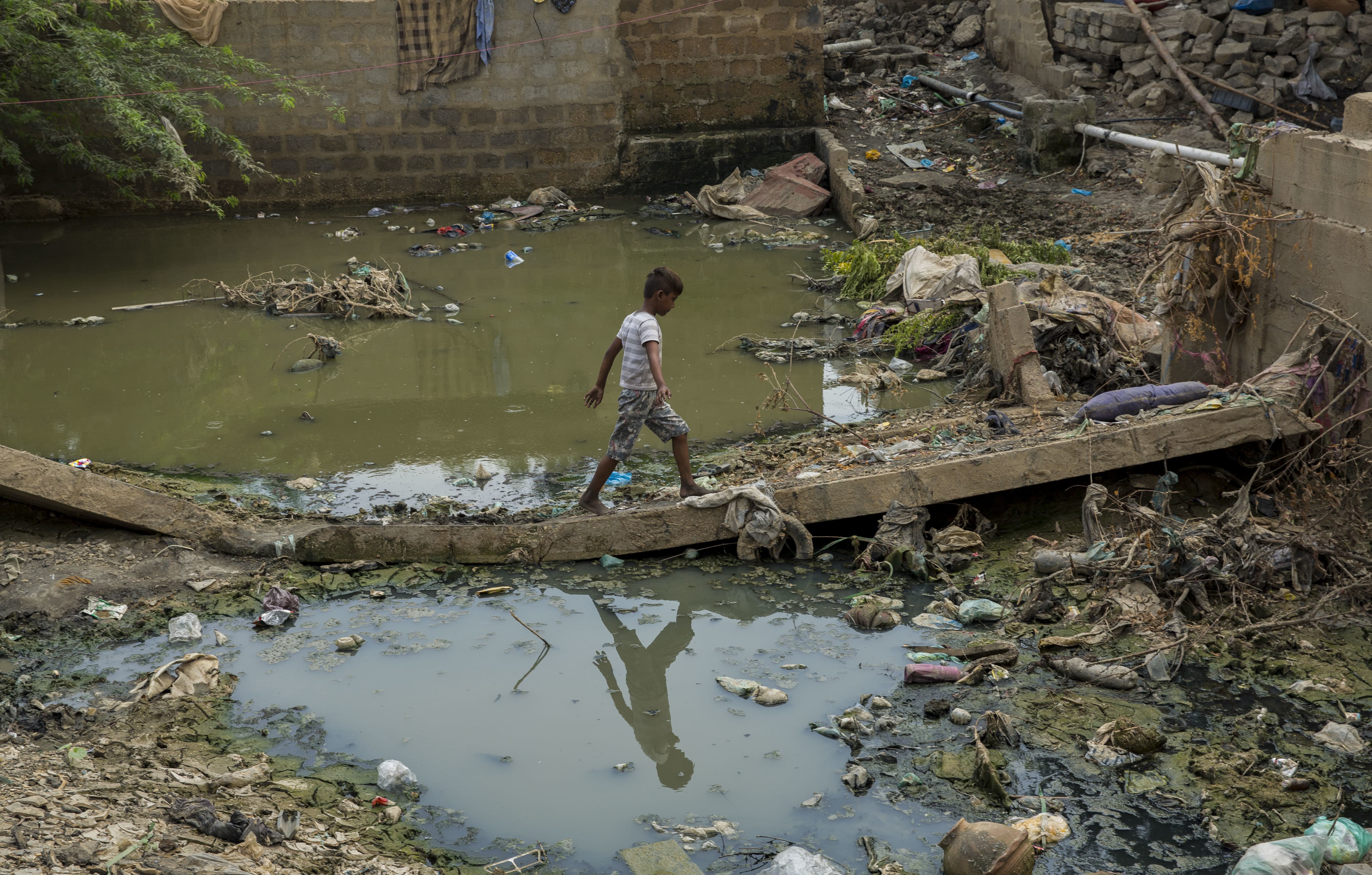With crops gone and possessions lost, the flood-affected communities of Sindh need our immediate attention
I have covered many stories of suffering and hardship, but what I witnessed during a recent assignment for the World Food Programme in rural Sindh has left me heartbroken.
On September 13, near the city of Badin, we entered one of Pakistan's worst flood-affected areas. For several kilometres and pretty much as far as the eye could see, there were temporary camps for the flood-affected dispossessed communities by the side of a main road in the area, with families living in hastily erected shelters and holding on to whatever few possessions they had left.
The conditions that we saw them living in, one could say that getting by in itself is a struggle for these communities. Some people would walk long distances in search of fresh water, whereas others would drink from the dirty water lapping up by the roadside. Many farmers had lost their cattle in the floods. Those whose livestock survived were doing all that they possibly could to keep the animals alive. Some of them had also built makeshift shelters for their animals and would share whatever little clean water they could spare with them. After all, these animals are the only source of income that these communities can rely on for now.




These communities are living in abject conditions that can pose severe health risks to all members. During the assignment, we saw children playing in the dirty floodwater, and women washing clothes and bathing their kids using the same. This is the case as there are not enough viable options and whatever clean water there is, is having to be rationed.
In the scorching heat of this region, insects can also be common and the prevalence of water means flies and mosquitos are everywhere, adding to the risk of disease for those who already have to live under the open skies and in conditions that have put their health at risk.







For the province, the monsoon is an annual event, but with climate change, the floods tied to it are getting worse. In the most recent flooding just weeks prior, scores of villages were destroyed and thousands were left homeless.
For some towns and villages, such as the ones in Mirpurkhas district, we had to travel by motorboats to reach the area. Villagers there told us that they hadn't seen any outsiders ever since the floods devastated their homes and that all their crops were now gone and possessions lost; no more houses, and nothing to eat. All I could say to them at that time was ‘I’m sorry’.
If they are left alone to fend for themselves, these communities may not able to make it. Their mud houses and fragile livelihoods as subsistence farmers cannot withstand this onslaught.
What has happened here can and must be tackled with urgency. The World Food Programme has provided them with food rations — flour, pulses, cooking oil, and nutritious edibles for children to prevent malnutrition from setting in. But for these communities, in order to get back on their feet, they need more and sincere support in the coming months and perhaps even years.



The WFP has been distributing food to the affectees. At one such distribution site in Umerkot, we met families that had gathered to receive their pre-packaged food ration as the villagers are all affected by the recent floods and are in desperate need of help. And then one villager asked ‘what will happen when this runs out? And how can we rebuild our homes?’
And this is not the story of this man alone. All along the main road of the city of Badin are kilometres and kilometres of hastily erected shelters, with dispossessed families seeking refuge, not knowing when they may be able to have a proper dwelling for themselves to move into.



The devastation is equally visible in an urban slum that we visited in the city of Karachi. Amidst damaged houses and roads, children were running around barefoot; mothers with babies in their arms were navigating carefully, so they do not trip through the puddles mixed with floodwater and sewage.
The effects of climate change are being increasingly felt in Sindh, and they are taking a particularly heavy toll on these communities of subsistence farmers, nomadic tribes, as well as on those living in urban slums; all the people we met during this assignment.
If anything is to be learnt here, it is that climate change is a threat to our communities and the danger it poses is constantly on the rise. Therefore, not only is it time for us to sincerely acknowledge this problem but to start taking meaningful measures to address it.
All photos by writer







